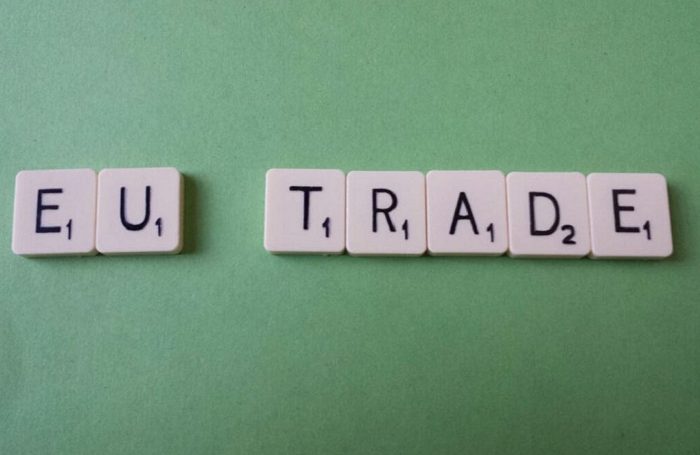
Since the referendum, the May government has left no opportunity unchecked to emphasise its ambition to pursue an ambitious free trade agenda. This triggered questions regarding the administrative capabilities of the UK to lead such negotiations after more than forty years of having delegated such authority to the European Commission (see a piece featured in The Guardian, as well as a post by Dennis Novy, as well as a paper by Thomas Sampson). This fear was exacerbated by the observation that contemporary trade agreements are far more complex and contentious than the type of trade deals negotiated in the seventies.
Based on my research of national trade administrations in the European Union, I would like to point at three arguments that provide some nuance to the assertion of the UK’s insufficient capacity to match its ambitious trade agenda as put forward in May’s vision of a ‘Global Britain’.
A first observation to be made is that within the EU’s internal decision-making structures national trade administrations persist to fulfill an active function. As part of the Council’s Trade Policy Committee (TPC), the member states hold the Commission to account throughout the negotiations. This scrutiny is hardly comparable to that of a dilettante legislative controlling an expert executive. These working groups consist of national experts which meet on a weekly basis to discuss all aspects of an on-going trade negotiation from the broader strategic considerations to the technical details of a proposal. In determining national preferences, they can rely on a well-connected administration in the national capital.
A second observation that helps explain why member states continue to have extensive trade administrations, is the regulatory turn in trade politics. Contemporary trade policy does not only concern barriers at the border but increasingly targets differences in regulatory standards behind the border. Regulation on food standards like GMOs, state support to the cultural sector or rules on public procurement can act as impediments to trade and thus be subject of a trade negotiation. These are areas where member states have not delegated their authority to the European Union and where fully competent administrations inform, devise and implement national policies. This development has broadened the community of trade experts to include regulators in many ministries and agencies. Taken all together, the UK champions one of the largest national trade administrations in the EU. On the domestic side, capacity is therefore amply available. Still, having the expertise to understand the substance of an agreement and derive one’s interests is not the same as performing well in international negotiations.
This brings me to my third and final point. Also on the negotiators’ side, the lack of expertise and experience should not be overestimated. Decision-making within the EU practically involves continuous plurilateral negotiations with other member states in the Council, with the European Commission and the European Parliament. Obviously, only few have done so in the context of trade negotiations but a similar reasoning applies to the Commission. Whereas DG Trade leads the negotiations, the Commission also relies extensively on other DGs with topical expertise to lead the negotiation on specific (regulatory) chapters. Probably the greatest administrative limitation for the UK can be found in the lack of people with experience in leading a comprehensive negotiation.
Rather than the lack of administrative capacity, I would contend that the absence of a clear strategy is the biggest challenge to the UK’s post-Brexit trade policy. From my research, the conclusion is drawn that (smaller) member states don’t necessarily need large administrations to protect their interests in the EU. The marginal benefits from such investment, often don’t compensate the additional administrative costs. What is important, however, is a clear strategy through which the administration can determine where it could best devote its (scarce) time and resources. Such a strategy is not just a matter of a global vision as to one’s offensive and defensive interests but also concerns the sequencing or prioritisation of different negotiations. Currently, the UK’s trade policy best resembles a ‘free for all melee’ with a slight preference for deals with countries that currently have not concluded a deal with the EU. The order in which you negotiate matters greatly. Starting from existing EU agreements makes negotiations a lot simpler and require less capacity. But trade agreements also create precedent effects. It creates expectations for future trading partners as to which concessions one can expect. Putting a UK-US FTA as a first priority appears to be an ill-guided display of national sovereignty rather than sound reasoning.
Further Reading on E-International Relations
- Brexit and the 2019 European Elections
- Post-Brexit EU Defence Policy: Is Germany Leading towards a European Army?
- European Parliaments in Times of Coronavirus
- Brexit Britain in the Transatlantic Standoff: Bridging the Gap?
- Grexit and Brexit: Lessons for the European Union
- The Redemption of British-American Special Intelligence Relationship